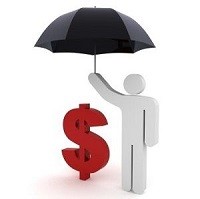What is Business Insurance Coverage UK?
In simple terms, it protects businesses from losses caused by incidents or events occurring as part of the normal course of trading.
There are several different types of commercial insurance for businesses, including coverage for:
- Employee-related risks
- Legal liability
- Property damage
Company owners should evaluate how much business insurance they need based on the potential risks. As a rule, the environment in which the firm operates would determine its risk factors.
The general rules of business and finance require regular decisions based on the reckoning of ‘risk versus reward’. But, it may be a serious oversight to ignore the importance of having adequate business insurance.
Businesses big and small face some risk of financial disaster from events occurring outside of their control. Among the most serious incidents for UK-wide businesses could be fire, flood, theft, and vandalism.
As a business owner, you have an obligation to ensure certain types of insurance policies are in place. Commercial insurance provides a professional level of cover. It can protect every aspect of the business, from the premises to the workers. It can also cover legal matters that might arise from carrying out the daily operations.
Note: The next part of the business insurance explanation describes what coverage you need by law and what you should have.
Business Insurance Required by Law
You need Employers’ Liability insurance if you are employing people in a business. It would cover you ‘financially’ against claims made by any staff members who injure themselves on the company premises.
Not having Employers’ Liability insurance (EL) would make you liable for prosecution. In fact, an accident does not need to happen for this rule to apply with commercial enterprises.
It is also likely that a company will operate a motor vehicle of some sorts. If so, it must follow vehicle insurance law for insuring the vehicles and all users. So, to recap:
- Make sure you get employers’ liability insurance if you employ people.
- Insure all motor vehicles used by all staff members within the company.
Commercial Insurance to Consider
There are several other kinds of business insurance policies that are not required by law. Even so, it would be prudent for anyone who is running a company not to ignore or overlook them.
 Do you invite members of the public onto your premises at any time? If so, you should think about having public liability insurance. A solitary claim could be enough to send most small businesses into debt and bankruptcy.
Do you invite members of the public onto your premises at any time? If so, you should think about having public liability insurance. A solitary claim could be enough to send most small businesses into debt and bankruptcy.
Product liability insurance is another to contemplate if a company sells, manufactures, or supplies products. So, to recap:
- Make sure you get employers’ liability insurance if you employ people.
- Insure all motor vehicles used by all staff members within the company.
Other Insurances for Small Businesses
The type of business you are running could determine what other insurances to get. But, there are some common risk areas that you might assess – and then insure against.
Having business interruption insurance could be the savior if disaster strikes and puts the operation on hold. You can also insure goods in transit, materials, money, international payments, premises and company directors. So, to recap:
- Assess the risk areas that are exclusive to your particular enterprise, industry, and sector.
- Consider how not being able to trade for a period of time would affect the operation and the workforce.
Getting a Good Deal on Insurance Premiums
Without doubt, the business insurance market is a competitive one. Shopping around for the best deal is likely to reap big savings and rewards. Discuss your needs with the bank and do an online search for quote comparisons.
Always read the small print on insurance policies. Make sure you meet the criteria and have enough coverage. You can get expert help if you need it to carry out a risk assessment of the premises and practices. Talk to insurers to explore ways of reducing the premiums (e.g. increasing security).
ALSO IN THIS SECTION
Business Support Helpline | A list of contact details for getting government help and support online.
Setting Up in Business | Learn the basics of setup to help make a new venture even more successful.

